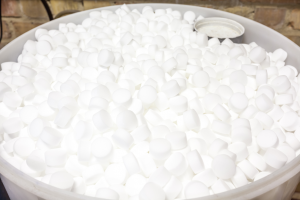Understanding the Functionality of Water Softeners; Insights from a McHenry Water Purification Company
 If you live in the McHenry area, you’ve probably heard a thing or two about water softeners. You might even have a basic idea as to what water softeners are. However, do you understand the functionality of a water softener?
If you live in the McHenry area, you’ve probably heard a thing or two about water softeners. You might even have a basic idea as to what water softeners are. However, do you understand the functionality of a water softener?
Understanding a water softener’s functionality isn’t exactly vital. After all, it will run regardless of your knowledge. That said, you might want to gain a little more perspective.
Interested in learning more? Then read below. We’re going to discuss the specifics of the water softener in McHenry, Illinois.
Hard Water vs Soft Water
If you want to know how a water softener operates, it’s important that you first understand the differences between hard and soft water. A water softener takes hard water and makes it soft, after all.
First, we’ll discuss hard water. This is a form of water that contains two specific minerals in excess — those minerals being calcium and magnesium. These minerals inundate water as it’s sitting in the ground. Then, when the water is brought up, these minerals come along with it, causing a host of functional problems, including pipe clogging, skin and hair issues, and limescale buildup.
Soft water, on the other hand, is water that either doesn’t contain these minerals, or only contains them in small amounts. Less damaging than hard water, it is generally considered to be the ideal option for a home’s water supply.
Understanding Ion Exchange
The operation of the water softener revolves around one key concept. That concept is ion exchange. This concept plays out within a water softener as sodium ions are traded for calcium and magnesium ions.
Each water softener contains a charged resin, and this resin contains sodium ions. When hard water enters the water softener, the calcium and magnesium inside of it make contact with the resin. As this occurs, the sodium ions on the resin enter the water. This effectively removes the calcium and the magnesium, allowing the water to be as soft as possible.
Yes, there is some sodium left in the water after the process has finished. That said, it’s such a small amount that it has little to no effect on the water’s overall quality.
Is a Water Softener a Necessity?
Now, you might be wondering: is a water softener a necessity? Is all water hard? The answer is ‘no’ — not all water is hard. That said, in northeastern Illinois (where we’re located), the vast majority of homes and commercial properties have hard water running through their pipes.
Whether or not an area has hard water is dictated by its soil. If the area’s soil has high calcium and magnesium content, it’s going to have hard water. Conversely, if the area’s soil has low calcium and magnesium content, it’s going to have soft water. Many areas fall somewhere in the middle, possessing water that is only a little soft or only a little hard.
You might also be wondering: what will a water softener do for you? What are the benefits or removing calcium and magnesium from water? Not only will your pipes experience less mineral buildup, but so too will your sinks and showers. Other benefits include increased soap suds, and healthier hair and skin.
As such, if you have hard water running through your home, it’s generally a good idea to soften it.
Interested in Installing a Water Softener in McHenry, Illinois?
Now that you know a little something about the functionality of water softeners, you might be interested in installing one of your own. If so, and if you’re looking for a water softener in McHenry, specifically, there’s no need to look any further. Johnson Water Conditioning has you covered.
Our team has installed water softeners in countless McHenry area homes. Regardless of your needs, we have you covered.
Contact us today to request a free estimate!

 Better Water for
a Better Life
Better Water for
a Better Life
